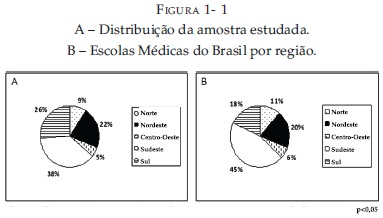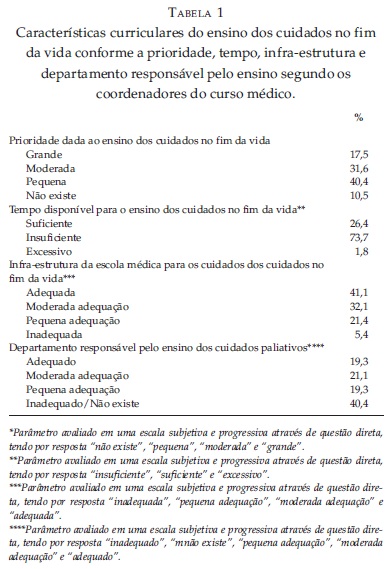BACKGROUND: There is importance in analysis of tech-learning in the medical schools that allows identify opportunities of improvement in end-of-life care education. PURPOSE: The aim of this study is describe end-of-care teaching attitudes and practices in undergraduate medical curriculum in Brazil as reported by the course coordinators. METHOD: A questionnaire about end-of-life care was applied on 179 course coordinators of medical schools in Brazil. RESULTS: Fifty-eight coordinators participated (32,4%). Most of them (96,6%) considered end-of-life care education as very important. Seventy-tree percent believes that the time to teaching about palliative care in their curriculum is insufficient. The priority given to education in palliative care is considered insufficient or inexistent in 50,9% of cases. The small number of faculty expertise is one of barriers to incorporate end-life-care in the medical school's curriculum. CONCLUSION: Attitudes and practices suggest that end-life-care education has limitations in undergraduate medical Brazilian curriculum. Even so the current coordinators believe its importance still is given little priority to the education of this subject in Brazil.
Terminal Care; Palliative Care; Education, Medical; Schools, Medical




